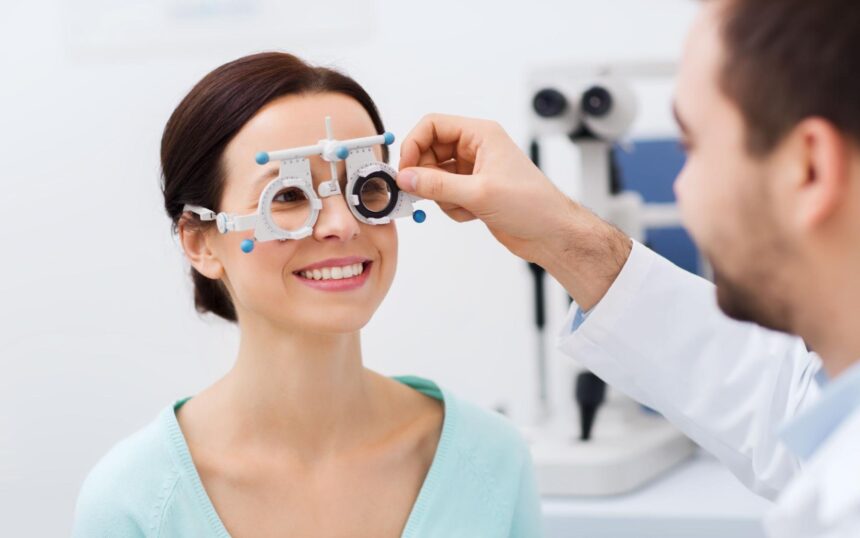
Is Eye Doctor Covered By Health Insurance
Eye Doctor Covered By Health Insurance
Good morning! I just realized that I’ve been typing with the screen’s brightness completely reduced. It makes sense why my eyes are fatigued! It got me thinking: Are eye doctor appointments covered by health insurance? Let’s get started!
It can occasionally feel like a maze to navigate the complicated insurance landscape, particularly in certain optometry settings. Understanding the distinctions between what is and isn’t covered by various insurance options is crucial when it comes to taking care of your eyes and eyes. It’s not just about money. It’s knowing how to acquire the treatment your eyes need.
Medical insurance often provides comprehensive coverage for the majority of medical circumstances. Although there might be certain limitations or out-of-pocket costs, optometry treatments are frequently reimbursed if your eye health is extremely dangerous or could have an impact on your general health. Eye insurance, on the other hand, is intended especially to assist in defraying the expenses related to regular eye care.
What Is Covered By Medical Insurance?
Consider health insurance as a comprehensive defense against a variety of medical costs. It is intended to protect you against monetary difficulties brought on by an unforeseen disease or accident.
Medical insurance policies vary depending on your plan, but they often cover a wide range of healthcare services. In California, a typical medical insurance policy would typically include:
- Most hospital stays or emergency services
- Diagnostic imaging or laboratory testing
- Prescription drugs
- Surgery and specialized treatment
- Services for prevention, such as screenings and vaccinations
- Treatment of long-term illnesses and ailments

Medical insurance usually covers eye care when there are conditions or injuries that affect the eyes, like:
- Recent ocular trauma or injury
- Cataracts
- Age-related macular degeneration and glaucoma
- Retinopathy due to diabetes
This makes it easier to remember: eye care services are frequently reimbursed if a healthcare provider determines that they are medically necessary. However, depending on your particular plan, there can be significant differences in what is and isn’t covered. It’s critical that you carefully review your plan if you have health insurance in order to completely comprehend your coverage. If you require clarification on any language, get in touch with your insurance company.
Eye Insurance: What Is It?
However, there is a catch: medical insurance is intended to address specific medical issues and diseases. This implies that regular eye care, such as eye exams and glasses, is frequently not covered.
At this point, eye insurance becomes relevant. Eye insurance is intended especially for services associated with preserving the health of your eyes. Frequently covered services include:
- Yearly eye exams
- Prescription eyewear, such as contact lenses and spectacles
- Savings on LASIK and other corrective procedures
- Coverage for scratch-resistant and UV-protective coatings can occasionally
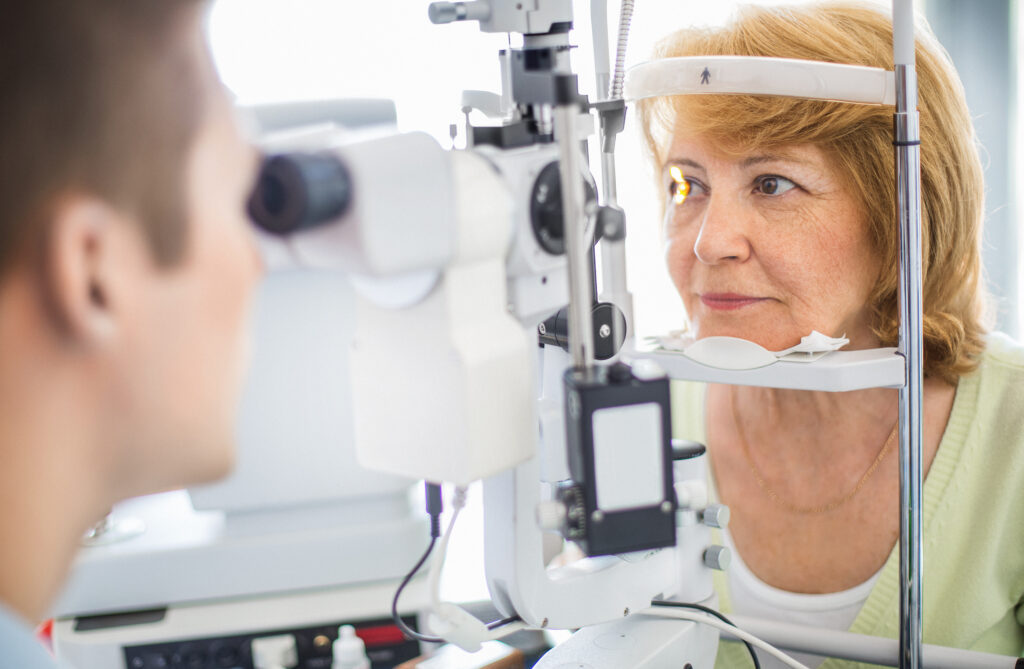
By concentrating on eye-related requirements that your standard insurance plan might not cover, eye insurance seeks to supplement your current medical coverage. With eye insurance, you can visit your optometrist as prescribed and avoid paying out of pocket for normal eye care without worrying about the cost.
Are Optometrists Covered By Eye Or Medical Insurance?
For services that are within their purview, optometrists usually take medical and vision insurance policies. Making it clear which services are covered by which insurance type is crucial.
Medical insurance is typically accepted by your optometrist if the services are connected to your general health. In addition, any necessary eye care that is considered a medical necessity will probably be paid for.
In contrast, vision insurance is frequently accepted in the majority of other circumstances. Your experience, however, can differ based on your particular plan. Consult your provider or consult any supporting documents if you’re not sure if your plan will cover your circumstances.
What Is Covered By Eye Insurance?
It’s crucial to remember that depending on where you live, your eye insurance plan can cover different services. However, in California, a typical eye insurance policy will include:
- Examinations of the eyes
- Eyeglass frames and lenses
- Both the actual contact lenses and their fits
- Large savings on elective eye repair procedures
- Checking for diseases such as presbyopia or astigmatism
- Plans for eyeglasses protection, such as breakage insurance
It is intended to reduce patients’ out-of-pocket expenses and increase their access to and affordability of eye care. This facilitates obtaining any services required to safeguard and maintain your eye health.

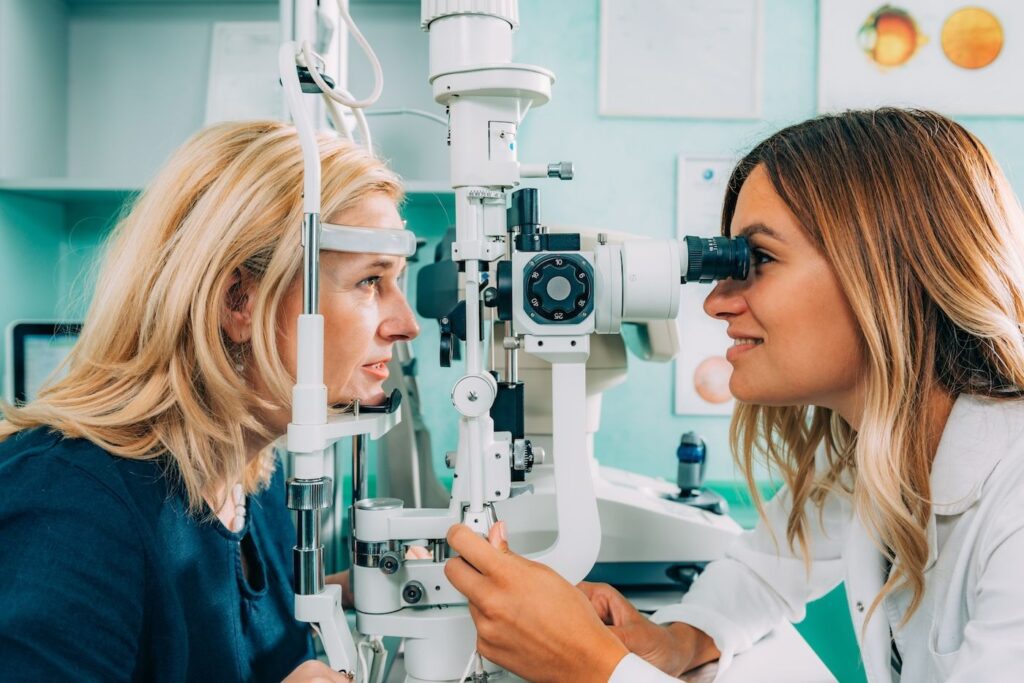
What Is Not Covered By Eye Insurance?
Though it frequently makes eye care more affordable, eye insurance does not cover all aspects of optometry.
Medical services for eye disorders or severe eye ailments can not always be covered by it, particularly if they aren’t regarded as routine eye care. This might consist of:
- Eye infection treatment
- Emergency procedures
- Eye emergencies
These may be covered under your health insurance policy. Make sure you consult your optometrist to find out if your eye insurance will pay for treatment if you need medical or urgent eye care.
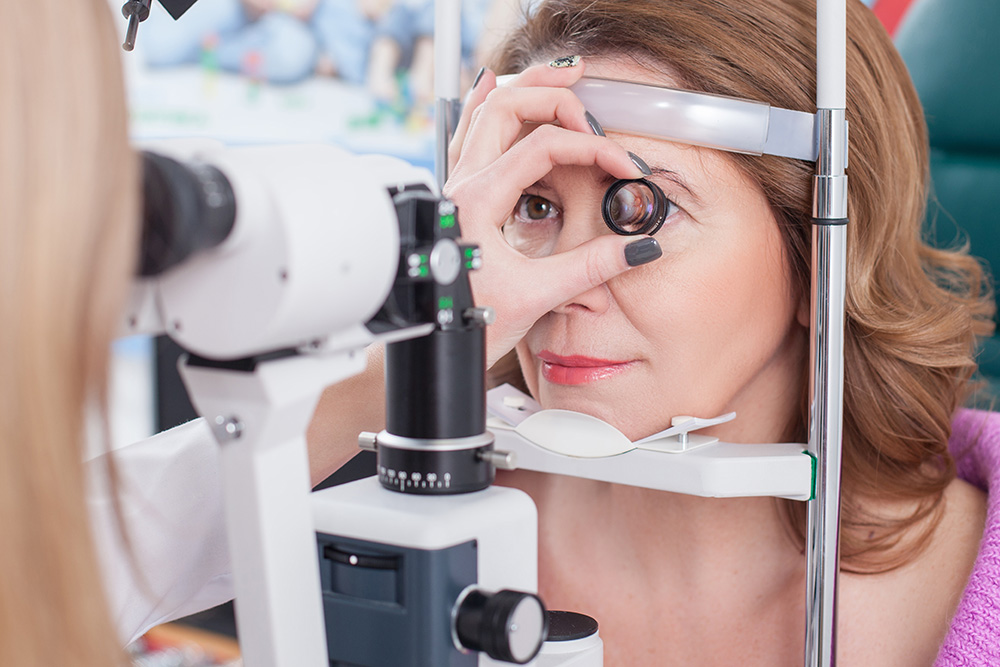
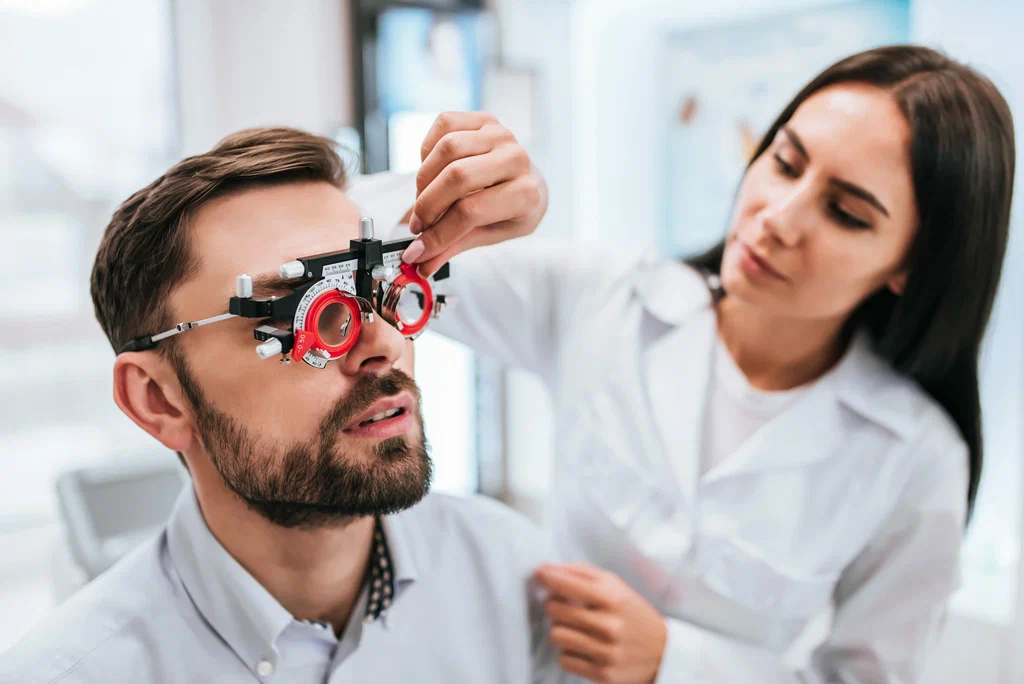
Conclusion
FAQ
Usually, ophthalmologist care, which is regarded as specialist care, is covered by health insurance. On the other side, optometrist visits are not covered.
Eye Surgery Cover provides protection against medical expenses related to eye surgery. The plan includes coverage for OPD teleconsultation with up to seven specialists, ambulance fees, and hospital room rent. Any expert in internal medicine, nutrition, dermatology, or gynecology is available for consultation.
People can get full medical insurance through the Care Health Care Insurance plan, which used to be called the Religare Care Health Insurance plan. This plan protects people and their families financially in case of a medical accident. Policyholders can focus on getting better without having to worry about money because Care Health Care Insurance covers good medical care in India and other countries.
Unlimited Automatic Recharge: This benefit ensures that you never run out of coverage during the policy period by automatically increasing the amount of insurance when it runs out. Users of this feature are not limited in any way; they can use it as much as they desire.
The good news is that there are initiatives that provide eye tests and glasses for free or at a reduced cost. Additionally, some health insurance policies help pay for various eye care services and offer free vision screenings.
An Outpatient Department (OPD) is a part of a hospital or other medical center where people can get different kinds of medical care without having to be admitted. It helps people who need medical care, such as appointments, tests, and medicines, but don’t want to stay the night.
Most health insurance plans cover diagnostic tests that you can get without staying at the hospital. These include blood tests, X-rays, ultrasounds, CT scans, MRIs, and other imaging treatments. It’s important to know that not all insurance companies handle OPD services in the same way.
Health insurance isn’t just meant to pay for hospital bills. It also includes a range of medical treatments and services that don’t require patients to stay overnight. These plans are meant to give you medical care whenever you need it.
Benefits from vision insurance usually cover some of the regular expenses for eye care, such as regular eye exams, glasses, or contact lenses. You can choose to get vision coverage in addition to other supplemental plans, such as a dental plan, or you can purchase vision policies to supplement your health insurance.

